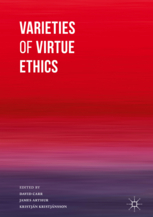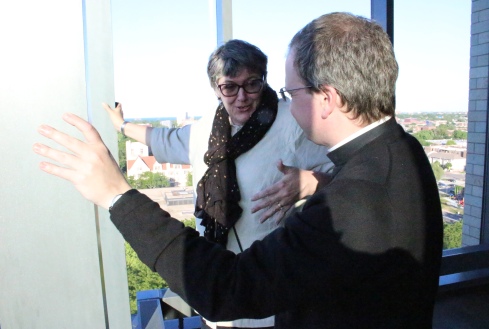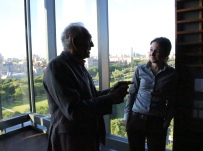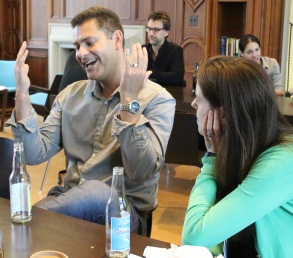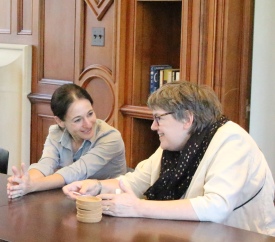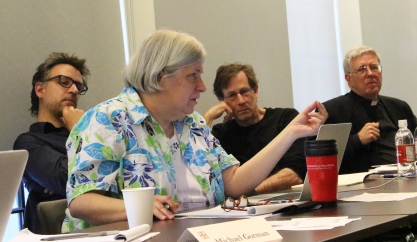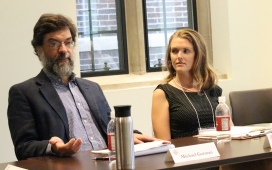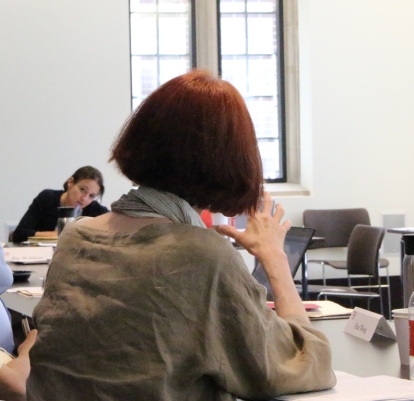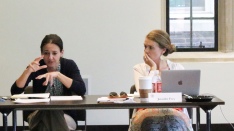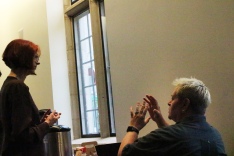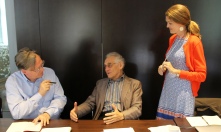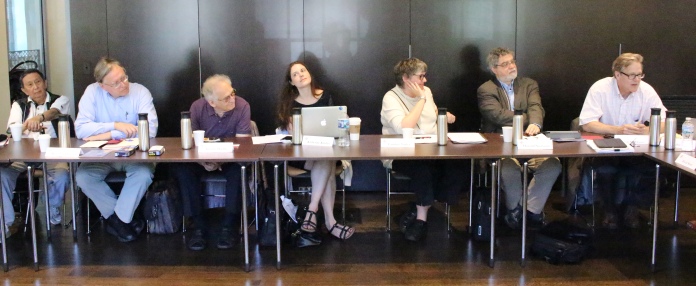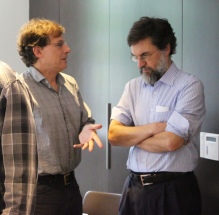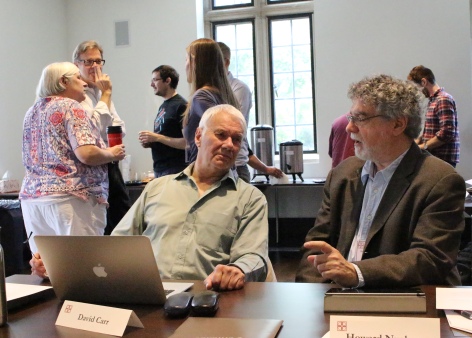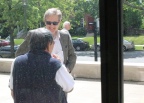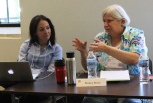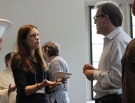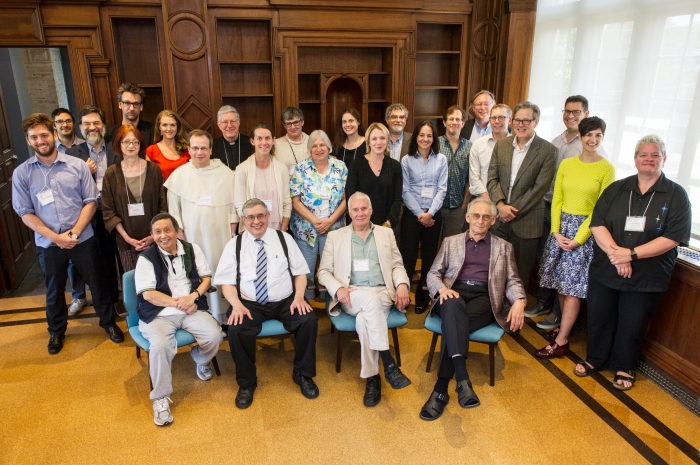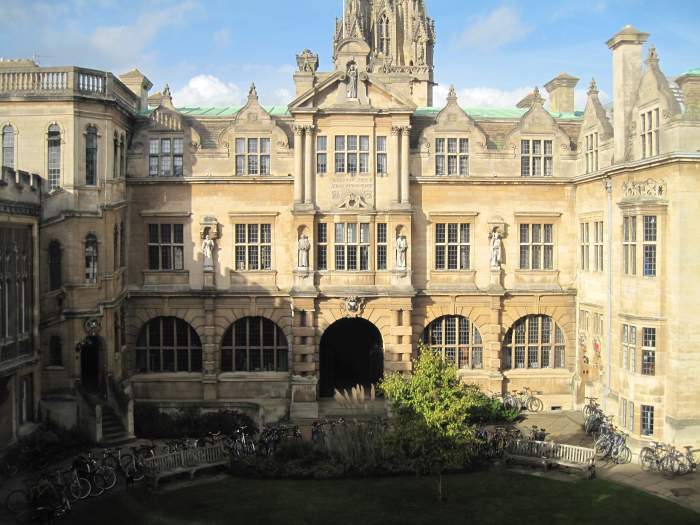
Several of our scholars gave talks at the sixth annual conference of the Jubilee Centre for Character and Virtues, “Virtues in the Public Sphere,” held at Oriel College, Oxford UK January 4-6, 2018. We’re delighted to share their abstracts with you.
Talbot Brewer, Keynote Speaker: Liberal Education and the Common Good
Defenders of liberal education often stake their case on its contribution to reasoned public debate. There is considerable force to this argument. Yet if we set out to design a program of higher education optimally suited to enhance political deliberation, much of what we know and value under the heading of liberal education would be omitted as irrelevant. This is because the telos of the liberal arts is not the full development of citizens; it is the full development of human beings. The virtues of the university are those qualities and practices that conduce to this comprehensive human good. Does this mean that liberal education has no claim to public subsidy? No. The sort of thought that forms and deepens human beings is a public good, one that withers without public investment. Investment in such thought is especially important today, when the social order has become deeply hostile to it.
John Haldane, Keynote Speaker: Responding to Discord: Why Public Reason is Not Enough
Difference and disagreement, contest and dispute are common features of human interactions and relationships. Insofar as they are confined to the private sphere the inability to resolve them may be a matter for regret, but there are strategies for containing, coping with or evading them. Matters are not so easy when these occur in the public sphere since they generally concern matters of broad public interest and bear on public values and policies, and they tend to ramify and lead to further divisions and sectionalisation. The evidence of this is everywhere to be seen in disputes about beginning and ending of life issues, education, sexual identity and practice, political and cultural identity, even human nature itself. Since these are all closely connected with questions of public values and policy, the scope for containment, coping or evasion is severely limited, and such strategies are themselves contested as instances of resistance to due change. Against this background, we must think more and better about the nature of the private-public contrast, and about the nature of the resources available in the making of arguments about ethical, existential, social and cultural issues. The intention and value of recently advocated norms of ‘public reason’ are themselves matters of contest and we need to think more deeply about what is and what is not reasonable. Beyond that we need in private and public life to identify relevant intellectual and practical virtues and give priority to the advocacy and inculcation of these.
David Carr, Moral Character and Public Virtue in Public, Professional, and Political Life
There is a strong case for the virtuous professional practitioner especially in relation to occupations where the professional role involves being an example to others of how to be of good character. Perhaps the most conspicuous examples of such occupations are those of teaching and religious ministry. While such exemplification cannot be guaranteed to have the desired modelling effect on others, it increases the likelihood that such modelling may occur and is the only course consistent with the overall aims of teaching and ministry.
In this context, this paper will focus on politics, arguing that there is a compelling case for virtue and character exemplification by professional politicians and that bad political examples can have a deleterious effect on the general moral tone of the societies that politicians of bad character are elected to lead or represent.
Nancy Snow, Hope as a Democratic Civic Virtue
I argue for a conception of hope as a civic virtue that is most valuable when democracy faces significant challenges. In Part I, I sketch an initial conception of hope as a democratic civic virtue. In II, the stage is set for further theorizing of this conception in the present American context. In III, I flesh out what hope as a democratic civic virtue could look like in the U.S. today. Part IV concludes with comments about theorizing civic hope in the context of a modified pragmatism.
The Conference Programme and the Oratory School Schola concert programme are accessible by clicking the links below:
Conference Programme: http://jubileecentre.ac.uk/userfiles/jubileecentre/pdf/conference-papers/Virtues_in_the_public_sphere/Virtues_in_the_Public_Sphere_Programme.pdf
Concert Programme: http://jubileecentre.ac.uk/userfiles/jubileecentre/pdf/conference-papers/Virtues_in_the_public_sphere/TheLondonOratorySchoolProgramme.pdf
The next Jubilee Centre conference will be “Educating Character Through the Arts,” and will be held at the University of Birmingham Conference Centre, July 19th through July 21st, 2018. The call for abstracts for the conference can be found here:
http://www.jubileecentre.ac.uk/1743/conferences/educating-character-through-the-arts
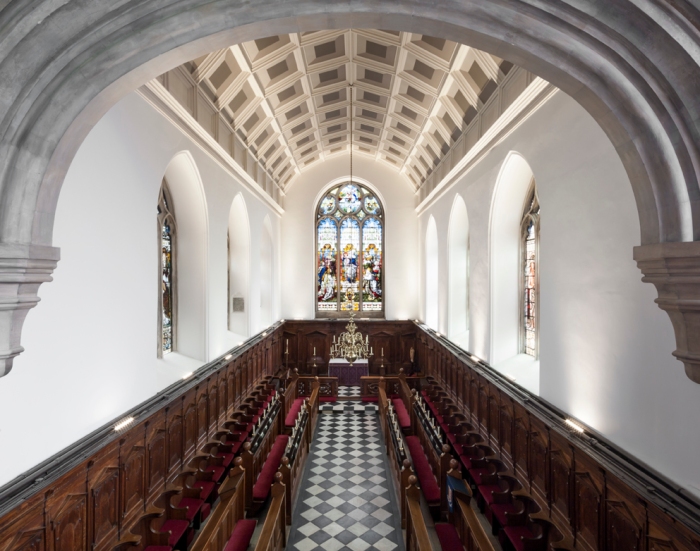

 David C. Carr is Professor Emeritus, University of Edinburgh, and Professor of Ethics and Education, University of Birmingham, Jubilee Centre for Character and Virtues. His principal research interests include the study of ethics, virtue ethics and moral education; the nature of professionalism and professional ethics; aesthetics; and education of the emotions. He has written widely in these areas and is the author of Making Sense of Education: An Introduction to the Philosophy and Theory of Education and Teaching (Routledge 2003). Recent publications include “Virtue, Mixed Emotions and Moral Ambivalence,” Philosophy 84:1, 31-46, and “Character in Teaching,” British Journal of Educational Studies, 55:4, 369-389.
David C. Carr is Professor Emeritus, University of Edinburgh, and Professor of Ethics and Education, University of Birmingham, Jubilee Centre for Character and Virtues. His principal research interests include the study of ethics, virtue ethics and moral education; the nature of professionalism and professional ethics; aesthetics; and education of the emotions. He has written widely in these areas and is the author of Making Sense of Education: An Introduction to the Philosophy and Theory of Education and Teaching (Routledge 2003). Recent publications include “Virtue, Mixed Emotions and Moral Ambivalence,” Philosophy 84:1, 31-46, and “Character in Teaching,” British Journal of Educational Studies, 55:4, 369-389.